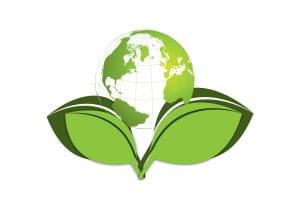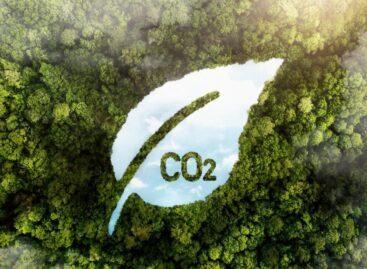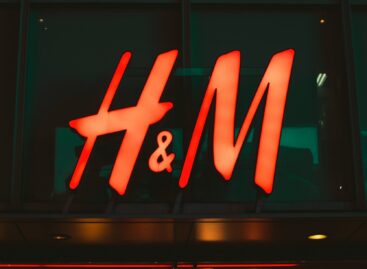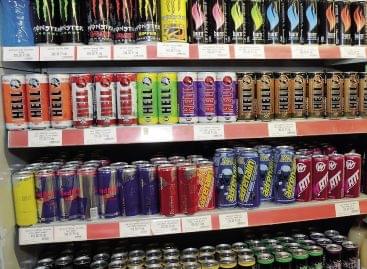In Hungary, too, companies disguised as environmentally friendly and “green-sweeping” may find themselves in the crosshairs
In parallel with the strengthening of the camp of conscious consumers, more and more companies may be accused of greenwashing: in the latest case, the Dutch Competition Authority objected to Decathlon’s and H&M’s commercial practices related to sustainability. Investigations like this may increase in our country as well, as international and domestic authorities show increased interest in investigating various green claims. Deloitte’s experts emphasized that companies must first of all make their operations transparent through the provision of appropriate data in order to avoid the risk of going green.

(Photo: Pixabay)
Nowadays, the authorities are increasingly interested in the green claims and sustainability statements used by businesses. Curbing greenwashing already has a practical aspect from the regulatory side, which also affects Hungarian companies. In March of this year, the European Commission proposed several amendments to the Unfair Commercial Practices Directive. On the one hand, it would add environmental and social effects to the list of product features in relation to which the retailer must not mislead consumers, and on the other hand, it would classify environmental claims that lack clear, objective and verifiable commitments and targets for future environmental performance as misleading. According to the proposal, companies will not be able to use generic green claims if the product or the company itself cannot prove the beneficial environmental performance, and they will not be allowed to display sustainability labels on their products that have not been verified by a third party. The Commission’s proposals are currently being examined by the Council and the European Parliament. After the legislation has been adopted by the co-legislators and the member states have transposed it into their national legal order, consumers will be entitled to legal remedies in the event of a violation of the law.
The Dutch authorities accuse Decathlon and H&M of greenwashing

dr. Anna Miks, head of the competition law group at Deloitte Legal
Recognizing that consumers are increasingly taking sustainability aspects into account, the Dutch Competition Authority launched a deeper investigation, in the framework of which it analyzed the green claims of many companies. The investigation revealed that the Dutch Decathlon and H&M used certain sustainability labels without providing an explanation of the environmental impact of the products with such a label. Since sustainability product labels also play an increasing role in consumer decisions, if clear information about the environmental benefits of products with green labels is not available, conscious consumers may base the comparison of products according to their impact on the environment on misleading or even false claims. – Based on the Dutch example, it is clear that the European competition authorities are paying more and more attention to the sustainability statements of businesses. It is no different in our country, the Economic Competition Office also considers the area of sustainability and green claims to be a current and very important topic. – drew the attention of dr. Anna Miks, head of the competition law group at Deloitte Legal. The French sports retailer also uses an environmental labeling system (“Environmental labeling system”), in which the products with the objectionable “Ecodesign” label are ranked from A to E, but neither the markings used in the framework of the system nor their function are explained, or just barely available on the website. In the case of the fast fashion brand, the authority objected to two other practices in addition to the lack of explanation of the “Conscious” and “Conscious Choice” labels. On the one hand, H&M also indicated its own sustainability commitments in the description of its products, regardless of whether the given product was actually made of “more sustainable material” or not, and on the other hand, it created the impression that all the cotton it used was “sustainable”, even though the company it buys only a certain part of the cotton it uses within the framework of the Better Cotton Initiative (“BCI”).
Greenwashing does not remain without consequences
The companies have made various commitments in light of the above findings of the authority: Decathlon has undertaken to improve the green claims on its website and the appropriate explanations for them, while H&M will remove the inscriptions “Conscious” and “Conscious Choice” until an appropriate way is found. find to present the benefits related to the products, as well as modify the description of the products and clarify the description of the BCI initiative. The fashion brand also agreed to donate 500,000 euros to a non-profit organization active in the field of sustainability, and the sports retailer to implement a compliance program, in-house and external audit, and offered a donation of 400,000 euros for the development of sustainability programs.
What can companies do to avoid “greenwashing”?
Ensuring transparency

Flóra Borek, manager of Deloitte’s Sustainability and Climate Change Consulting
The basis for avoiding “greenwashing” is that companies make their operations transparent, their efforts and results for the sake of sustainability, as well as covering their areas to be developed, emphasized Flóra Borek, manager of Deloitte’s Sustainability and Climate Change Consulting. To do this, the organizations first had to thoroughly assess how it works – including the actors in our supply chain – and what impact it has on the environment and society. Only then can they set concrete and well-founded goals in order to strengthen their sustainability performance, it is worth regularly reporting on the implementation process to ensure their credibility. For example, it is not enough for the company to make a “net zero” emission commitment, the commitment is not accompanied by science-based emission reduction short- and long-term goals that are also in line with the company’s strategy.
Proper communication
In the case of sustainability claims and product features, it is of utmost importance that companies use clear language and that they can be verified. In December 2020, the Economic Competition Authority (GVH) published the so-called “Green Marketing” information sheet, which supports businesses in developing appropriate advertising practices related to the environment and sustainability. The information sheet and the requirements of other international frameworks (e.g. GRI) serve as a comprehensive guide for the proper disclosure of information related to environmental sustainability and the reduction of green waste risks. furthermore, it is worth considering the verification of the company’s ESG claims by an external expert. – Based on the example of H&M and Decathlon, it is recommended for all businesses to review their sustainability-related claims and communications and update them according to relevant international and domestic guidelines in order to reduce reputational risk. However, this is only the tip of the iceberg; according to the companies’ green claims, it must be based on well-founded and real data. – summarized Flóra Borek.
Related news
The market is not the primary driver of green corporate decisions in Hungary
The sustainability strategies and investments of domestic companies will be…
Read more >Europe’s breadbasket could become a desert
Spain has become Europe’s leading producer of fruit and vegetables,…
Read more >H&M feels the effects of the trade war and the decline in demand in Asia
The trade war and the decline in demand in Asia…
Read more >Related news
What makes us add the product to the cart – research
The latest joint research by PwC and Publicis Groupe Hungary…
Read more >Energy drinks are now legal: what every shopkeeper should know
New regulations on the sale of energy drinks came into…
Read more >Tens of millions with one opening tab – the biggest prize draw in XIXO history has started
This summer, XIXO is preparing for a bigger launch than…
Read more >






